2022 Speakers
Aluísio J.D. Barros, PhD
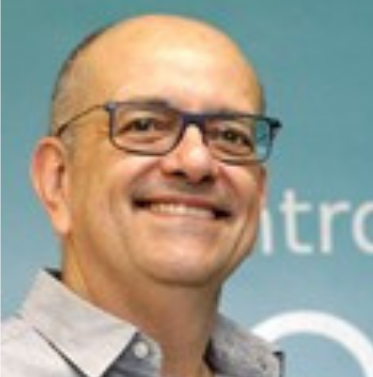 Aluísio ( ah-loo-EAZ-you) trained as an MD in Brazil (1983), and then did a Masters in Statistics in the Universidade Estadual de Campinas, SP, Brazil. That was followed by a PhD in the London School of Hygiene and Tropical Medicine, Maternal & Child Epi Unit, completed in 1996. In the same year, Aluísio joined the Department of Social Medicine, Universidade Federal de Pelotas (UFPel), Brazil, where he currently holds the post of Full Professor. He has a strong interest in methods, teaching the advanced statistics courses for postgraduate students. Currently, his main line of work is health equity, with a focus in global monitoring of Sustainable Development Goals. He is also one of the PIs of the Pelotas birth cohorts, with an interest in mental health and child development. In 2009, Prof. Cesar Victora and Aluísio started the International Center for Equity in Health ( ICEH) with the objective of monitoring health inequalities in low and middle-income countries. The Center works in close partnership with the Countdown to 2030, the WHO Global Health Observatory and UNICEF. Aluísio has authored more than 380 peer-reviewed papers, which received over 22,000 citations as of January 2022 ( Scopus, H-index=59).
Ana M. Vicedo-Cabrera, PhD
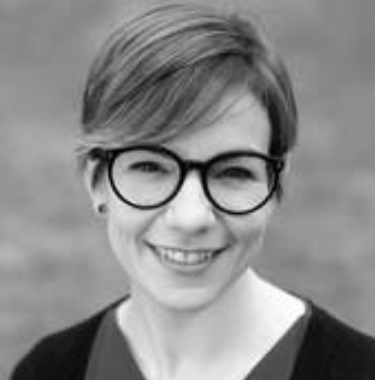
Ana M. Vicedo-Cabrera is an early-career researcher at the Institute of Social and Preventive Medicine of the University of Bern (Switzerland), where she leads the research group on Climate Change and Health. She is also a member of the Oeschger Center for Climate Change Research of the University of Bern.
Her current research addresses the impacts of climate change on health, with particular focus on the evaluation of adaptation strategies, mitigation policies and air pollution co-benefits. She has led and collaborated in several large epidemiological studies on temperature-related health impacts (e.g. within the Multi-City Multi-Country (MCC) Collaborative Research Network). She has participated and is also currently involved in several international projects on climate change and health, such as the EU funded PHASE, ACCEPTED and EXHAUSTION, and projects from the US Centers for Diseases Control and Prevention.
She holds an MSc in Environmental Toxicology (University of Valencia, Spain) and in Epidemiology (University of Turin). Since the completion of her PhD studies (University of Valencia) in 2014, she joined different research institutions in Sweden (Umea University), Switzerland (Swiss Tropical and Public Health Institute) and the UK (London School of Hygiene and Tropical Medicine).
Bertha A. Hidalgo, PhD, MPH
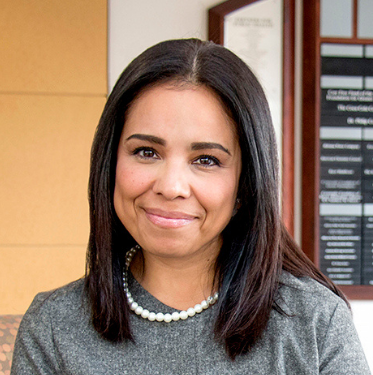
Dr. Bertha Hidalgo an Associate Professor with tenure in the Department of Epidemiology. She holds degrees from Stanford University, the University of Southern California and the University of Alabama at Birmingham. Her research focuses health disparities related to COVID-19, cardiometabolic diseases, with a special focus on Latino populations and genomics.
Camille Raynes-Greenow, PhD, MPH
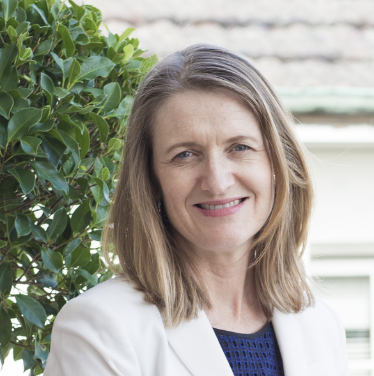 Camille Raynes-Greenow is Professor of Perinatal Epidemiology and Public Health, and Director of Public Health Practice at the Sydney School of Public Health, The University of Sydney. Her research focuses on modifiable risk factors for perinatal morbidity and mortality in mostly low and middle-income settings to improve survival of babies and infants. She is leading two large NHMRC funded cluster randomized controlled trials investigating the impact of reduced exposure to household air pollution on perinatal mortality, and infant outcomes at age two in rural Bangladesh. She is Chair of the International Network for Epidemiology, an Editor for the international Journal of Epidemiology, and Director of the Masters of Global Health. Camille Raynes-Greenow is Professor of Perinatal Epidemiology and Public Health, and Director of Public Health Practice at the Sydney School of Public Health, The University of Sydney. Her research focuses on modifiable risk factors for perinatal morbidity and mortality in mostly low and middle-income settings to improve survival of babies and infants. She is leading two large NHMRC funded cluster randomized controlled trials investigating the impact of reduced exposure to household air pollution on perinatal mortality, and infant outcomes at age two in rural Bangladesh. She is Chair of the International Network for Epidemiology, an Editor for the international Journal of Epidemiology, and Director of the Masters of Global Health.
Heidi J. Larson, PhD
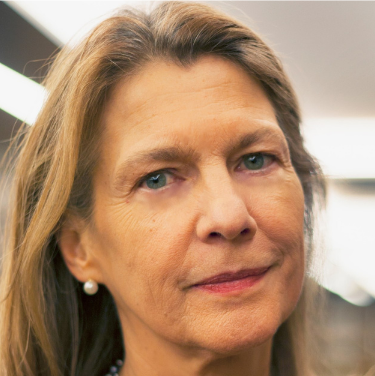 The disinformation challenge: When anti-science becomes “pro-freedom” The disinformation challenge: When anti-science becomes “pro-freedom”
This keynote address will address the challenge of growing public distrust and dissent around
scientifically endorsed medical and public health interventions, and reflections of possible strategies
to rebuild public trust.
Professor Heidi J. Larson is Director of The Vaccine Confidence Project and Professor of Anthropology, Risk and Decision Science at the London School of Hygiene & Tropical Medicine; Clinical Professor, Department of Health Metrics Sciences, University of Washington, Seattle; Guest Professor at the Centre for Evaluation of Vaccination, University of Antwerp, Belgium and Visiting Professor, Department of Medicine, National University of Singapore. Her research focuses on the analysis of social and political factors that can affect uptake of health interventions with a particular interest in risk and rumors from clinical trials to delivery – and building public trust.
Prof. Larson previously headed Global Immunization Communication at UNICEF, chaired Gavi’s Advocacy Task Force, and served on the WHO SAGE Working Group on vaccine hesitancy.
She is author of STUCK: How Vaccine Rumors Start – and Why They Don’t Go Away (Oxford University Press, 2020) and has published widely on the drivers and enablers of vaccine confidence. In 2021, she was awarded the Edinburgh Medal, in recognition of the role she has played in recognising the importance of popular and widespread misunderstandings of vaccines.
[email protected]
www.vaccineconfidence.org
@ProfHeidiLarson
Jan Eberth, MSPH, PhD, FACE
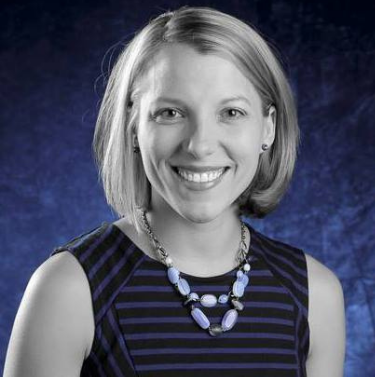 Jan Eberth is an Associate Professor in the Department of Epidemiology and Biostatistics at the University of South Carolina and the Director of the Rural and Minority Health Research Center. Her research focuses on health disparities, particularly structural barriers that impede access to cancer care. She has published >100 articles in this area of research and is nationally recognized for her work on lung cancer screening implementation and rural cancer disparities. She is the current President of the American College of Epidemiology and Vice-Chair of the National Lung Cancer Roundtable Provider Engagement and Outreach Task Group. Jan Eberth is an Associate Professor in the Department of Epidemiology and Biostatistics at the University of South Carolina and the Director of the Rural and Minority Health Research Center. Her research focuses on health disparities, particularly structural barriers that impede access to cancer care. She has published >100 articles in this area of research and is nationally recognized for her work on lung cancer screening implementation and rural cancer disparities. She is the current President of the American College of Epidemiology and Vice-Chair of the National Lung Cancer Roundtable Provider Engagement and Outreach Task Group.
Julie Leask, PhD, MPH
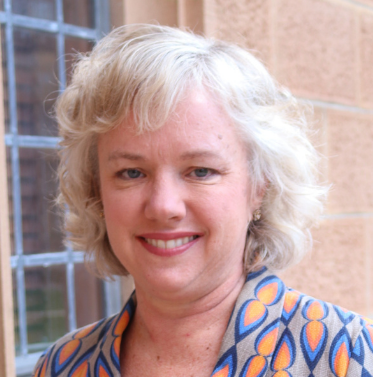 Julie Leask is a social scientist specialising in immunisation and professor in the Susan Wakil School of Nursing and Midwifery, Faculty of Medicine and Health, University of Sydney. She is a member of the Sydney Institute for Infectious Diseases and visiting professorial fellow at the National Centre for Immunisation Research and Surveillance. Professor Leask has a background in public health, nursing and midwifery with a Master of Public Health (1998) and PhD (2003) from the University of Sydney. Her research focuses on the social and behavioural aspects of vaccination uptake, programs and policy. She has also taught, studied and advised on the field of risk communication. She sits on several advisory committees, including for the World Health Organization, the Australian Government Department of Foreign Affairs and Trade, National Health and Medical Research Council, and Victorian Department of Health and Human Services. She was overall winner of the Australian Financial Review 100 Woman of Influence in 2019. In 2020, gave the Basil Hetzel Oration for the Public Health Association of Australia conference in 2020, with a talk entitled, “Ask The Community”. Julie Leask is a social scientist specialising in immunisation and professor in the Susan Wakil School of Nursing and Midwifery, Faculty of Medicine and Health, University of Sydney. She is a member of the Sydney Institute for Infectious Diseases and visiting professorial fellow at the National Centre for Immunisation Research and Surveillance. Professor Leask has a background in public health, nursing and midwifery with a Master of Public Health (1998) and PhD (2003) from the University of Sydney. Her research focuses on the social and behavioural aspects of vaccination uptake, programs and policy. She has also taught, studied and advised on the field of risk communication. She sits on several advisory committees, including for the World Health Organization, the Australian Government Department of Foreign Affairs and Trade, National Health and Medical Research Council, and Victorian Department of Health and Human Services. She was overall winner of the Australian Financial Review 100 Woman of Influence in 2019. In 2020, gave the Basil Hetzel Oration for the Public Health Association of Australia conference in 2020, with a talk entitled, “Ask The Community”.
Kari Nadeau, MD, PhD
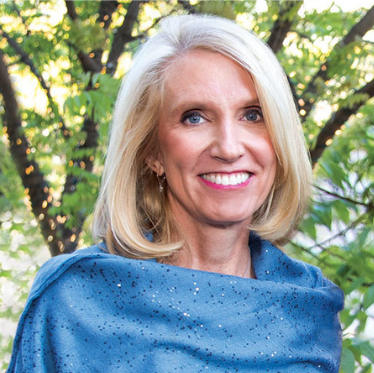 Dr. Kari Nadeau is the Naddisy Foundation Endowed Professor of Medicine and Pediatrics and, Director of the Sean N. Parker Center for Allergy and Asthma Research at Stanford University. She is Section Chief in Asthma and Allergy in the Pulmonary, Allergy and Critical Care Division at Stanford. She is the Sr. Director of Clinical Research for the Division of Hospital Medicine. Dr. Kari Nadeau is the Naddisy Foundation Endowed Professor of Medicine and Pediatrics and, Director of the Sean N. Parker Center for Allergy and Asthma Research at Stanford University. She is Section Chief in Asthma and Allergy in the Pulmonary, Allergy and Critical Care Division at Stanford. She is the Sr. Director of Clinical Research for the Division of Hospital Medicine.
For more than 30 years, she has devoted herself to understanding how environmental and immune/genetic factors affect allergies, immune tolerance, and asthma. She and her team are focused in areas of global climate change and health by studying air pollution and wildfire exposures, particularly in underserved areas. As one of the globe’s foremost experts in adult and pediatric allergy, immunology, and asthma, her research is laying the groundwork for a variety of potential future therapies to prevent and cure allergies and asthma. Dr. Nadeau leads a team of specialists spanning allergy, asthma, and immunology across Stanford University. She has been a pioneer in the field of Translational Allergy and Immunology, both defining the mechanism of new therapies and then translating them clinically to make transformative changes for patients and their families. She has led research in oncology, transplant, infectious diseases, COVID, and autoimmune trials and is a member of the National Steering Committee for the intramural clinical research programs at the NIH Immune Tolerance Network. She and her team have been awarded many patents and have started 4 biotech companies in the Bay Area under Stanford patents and has worked in industry to shepherd two drugs through the FDA to approval. She also is an author of the Lancet Countdown in Global Climate Change 2020 and the book: The End of Food Allergy (published 2020).
She is also passionate about breaking down health barriers and creating meaningful change for children and adults in underserved areas and has developed outreach and educational programs with partners in East Palo Alto, Inner City Chicago, Harlem, and San Francisco.
Dr. Nadeau received her MD and PhD from Harvard Medical School through the NIH MSTP program. She completed a residency in pediatrics at Boston Children’s Hospital and a clinical fellowship in allergy, asthma and immunology at Stanford and at University of California, San Francisco.
Katy Bell, MBChB, MMed (Clin Epi), PhD
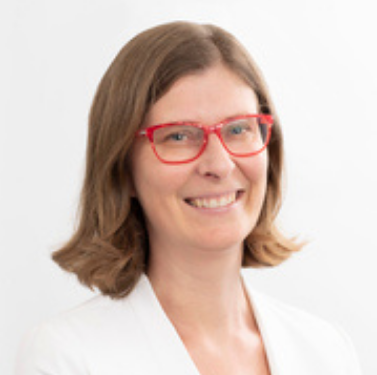 Associate Professor Katy Bell is a clinical epidemiologist and health services researcher with expertise in the evaluation of the clinical effectiveness of healthcare. Her research aims to identify sustainable models of healthcare that benefit health, and do not cause harm. She has been working on a new research theme focused on ways to decarbonize healthcare in order to decrease the substantial carbon emissions currently associated with the health sector. Associate Professor Katy Bell is a clinical epidemiologist and health services researcher with expertise in the evaluation of the clinical effectiveness of healthcare. Her research aims to identify sustainable models of healthcare that benefit health, and do not cause harm. She has been working on a new research theme focused on ways to decarbonize healthcare in order to decrease the substantial carbon emissions currently associated with the health sector.
Katy Gwiazdon, JD
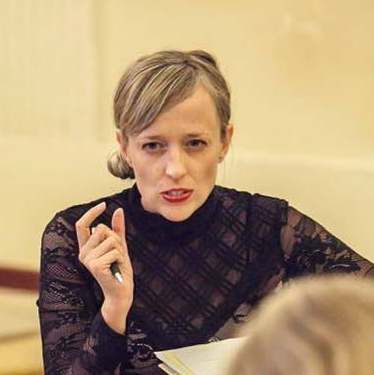 Kathryn (Katy) Gwiazdon, based in Washington D.C., is a lawyer, author, advisor, and connector who specializes in the role of the state in global governance and the intersectionality of ethics and the environment with all policy issues. She is the Executive Director of the Center for Environmental Ethics and Law, an international non-governmental organization that works with government and non-governmental organizations around the world to advance ethics in policy-making. Katy is also an Expert with the UN Harmony with Nature program and serves as Chair of the IUCN World Commission on Environmental Law Ethics Specialist Group. In addition, she is a Founding Steering Committee Member of the Ecological Law and Governance Association (advancing a systems-based approach to our environmental crises), a Steering Committee Member of the Global Ecological Integrity Group (advancing ecological integrity in science, ethics, and law), and an Executive Committee member of the International Network for Epidemiology in Policy. She teaches Climate Change Law, Human Rights Law, Public International Law, and International Business Transactions at Northern Illinois University College of Law (US). Her work focuses on systems of law and governance that harm and help our human and natural world, with particular consideration to the underlying values and power dynamics; most recently, she is teaching and writing on colonialism, neo-colonialism, and de-colonialism in international law and governance. Kathryn (Katy) Gwiazdon, based in Washington D.C., is a lawyer, author, advisor, and connector who specializes in the role of the state in global governance and the intersectionality of ethics and the environment with all policy issues. She is the Executive Director of the Center for Environmental Ethics and Law, an international non-governmental organization that works with government and non-governmental organizations around the world to advance ethics in policy-making. Katy is also an Expert with the UN Harmony with Nature program and serves as Chair of the IUCN World Commission on Environmental Law Ethics Specialist Group. In addition, she is a Founding Steering Committee Member of the Ecological Law and Governance Association (advancing a systems-based approach to our environmental crises), a Steering Committee Member of the Global Ecological Integrity Group (advancing ecological integrity in science, ethics, and law), and an Executive Committee member of the International Network for Epidemiology in Policy. She teaches Climate Change Law, Human Rights Law, Public International Law, and International Business Transactions at Northern Illinois University College of Law (US). Her work focuses on systems of law and governance that harm and help our human and natural world, with particular consideration to the underlying values and power dynamics; most recently, she is teaching and writing on colonialism, neo-colonialism, and de-colonialism in international law and governance.
Melissa L. Bondy, PhD
 Dr. Melissa Bondy is the inaugural chair of the Department of Epidemiology and Population Health and the Associate Director for Population Sciences at the Stanford Cancer Institute. Before joining Stanford, she was Associate Director of Cancer Prevention and Population Sciences and section chair of Epidemiology and Population Sciences at Baylor College of Medicine. Her research focus is in genetic and molecular epidemiology and is at the forefront of developing innovative ways to assess the roles of heredity and genetic susceptibility in the etiology of cancer and outcomes, primarily brain and breast cancer. Currently, she leads the largest family study of glioma patients, as well as a study of molecular predictors of outcome for glioma patients. She has a strong interest in health disparities and has a current study to investigate the ethnic differences in glioma. She has been working on studying the health effects of exposure to Hurricane Harvey. She serves on the National Cancer Institute’s (NCI) Board of Scientific Advisors, where she provides direct counsel to the Director of the NCI, and is a member of the External Advisory Board for several NCI-designated cancer centers. In 2018, she received the Visiting Scholar Award from the NCI Division of Cancer Epidemiology and Genetics. Dr. Melissa Bondy is the inaugural chair of the Department of Epidemiology and Population Health and the Associate Director for Population Sciences at the Stanford Cancer Institute. Before joining Stanford, she was Associate Director of Cancer Prevention and Population Sciences and section chair of Epidemiology and Population Sciences at Baylor College of Medicine. Her research focus is in genetic and molecular epidemiology and is at the forefront of developing innovative ways to assess the roles of heredity and genetic susceptibility in the etiology of cancer and outcomes, primarily brain and breast cancer. Currently, she leads the largest family study of glioma patients, as well as a study of molecular predictors of outcome for glioma patients. She has a strong interest in health disparities and has a current study to investigate the ethnic differences in glioma. She has been working on studying the health effects of exposure to Hurricane Harvey. She serves on the National Cancer Institute’s (NCI) Board of Scientific Advisors, where she provides direct counsel to the Director of the NCI, and is a member of the External Advisory Board for several NCI-designated cancer centers. In 2018, she received the Visiting Scholar Award from the NCI Division of Cancer Epidemiology and Genetics.
Rachel Kiddell-Monroe, LLB, LLM
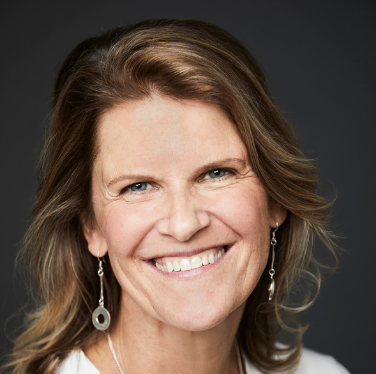 Rachel Kiddell-Monroe is a lawyer, a humanitarian, and an advocate. As a thought leader on reimagining humanitarian health crisis response, Rachel promotes values of humanity, justice, and solidarity in all aspects of global health. Unafraid to challenge the status quo, Rachel demonstrates how we can and must take a new approach in responding to health crises. The decolonized approach to humanitarian action she proposes is inclusive, participative, co-created and, most importantly, inspired and led by communities to address their health crises, their way. To demonstrate a new way of doing, Rachel founded SeeChange Initiative in 2018. This Canadian charitable organization supports Indigenous and other vulnerabilized communities globally to co-create innovative CommunityFirst solutions, including the CommunityFirst COVID-19 Roadmap, to organize, prepare and respond to health crises. Rachel Kiddell-Monroe is a lawyer, a humanitarian, and an advocate. As a thought leader on reimagining humanitarian health crisis response, Rachel promotes values of humanity, justice, and solidarity in all aspects of global health. Unafraid to challenge the status quo, Rachel demonstrates how we can and must take a new approach in responding to health crises. The decolonized approach to humanitarian action she proposes is inclusive, participative, co-created and, most importantly, inspired and led by communities to address their health crises, their way. To demonstrate a new way of doing, Rachel founded SeeChange Initiative in 2018. This Canadian charitable organization supports Indigenous and other vulnerabilized communities globally to co-create innovative CommunityFirst solutions, including the CommunityFirst COVID-19 Roadmap, to organize, prepare and respond to health crises.
Click to Read More on SeeChange Initiative
Shams El Arifeen, PhD, ICDDRB
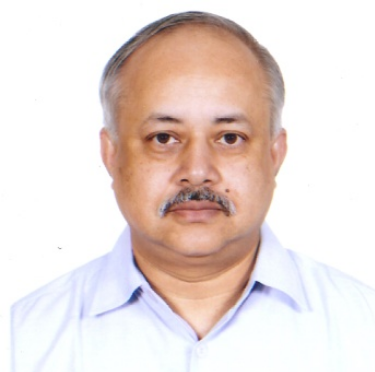 Shams El Arifeen is a senior scientist and director of the Centre for Child and Adolescent Health at ICDDR, Bangladesh. Dr. Arifeen currently heads the Child Health Unit at ICDDR,B where he works extensively on child and neonatal health, health services and health systems research. Dr. Arifeen is also an adjunct professor at the James P. Grant School of Public Health at the BRAC University in Bangladesh, where he teaches epidemiology and supervises MPH students in their independent research. Shams El Arifeen is a senior scientist and director of the Centre for Child and Adolescent Health at ICDDR, Bangladesh. Dr. Arifeen currently heads the Child Health Unit at ICDDR,B where he works extensively on child and neonatal health, health services and health systems research. Dr. Arifeen is also an adjunct professor at the James P. Grant School of Public Health at the BRAC University in Bangladesh, where he teaches epidemiology and supervises MPH students in their independent research.
Wael Al-Delaimy, MD, PhD
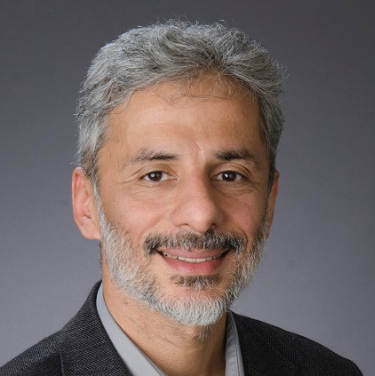 Wael Al-Delaimy is a multidisciplinary epidemiologist who focused his work on chronic diseases of diabetes, cancer, cardiovascular diseases, and more recently mental illnesses. His work in climate change health impacts is related to health policy and community engagement. He led the International Network on Epidemiology in Policy and developed policy briefs reflecting the consensus of the 24 epidemiology societies members of the network, including one on climate change and the role of epidemiology. His recently released book by Springer Nature titled: Health of People Health of Planet and Our Responsibility, reached a record milestone for the number of downloads of an ebook in its category. He has a medical degree from his Native Iraq, a PhD from New Zealand’s Otago University, and was a fellow and research associate at Harvard School of Public Health. Before joining the university of California San Diego faculty he was a Scientist at the International Agency for Research on Cancer in Lyon, France. Wael Al-Delaimy is a multidisciplinary epidemiologist who focused his work on chronic diseases of diabetes, cancer, cardiovascular diseases, and more recently mental illnesses. His work in climate change health impacts is related to health policy and community engagement. He led the International Network on Epidemiology in Policy and developed policy briefs reflecting the consensus of the 24 epidemiology societies members of the network, including one on climate change and the role of epidemiology. His recently released book by Springer Nature titled: Health of People Health of Planet and Our Responsibility, reached a record milestone for the number of downloads of an ebook in its category. He has a medical degree from his Native Iraq, a PhD from New Zealand’s Otago University, and was a fellow and research associate at Harvard School of Public Health. Before joining the university of California San Diego faculty he was a Scientist at the International Agency for Research on Cancer in Lyon, France.
|
 Aluísio (ah-loo-EAZ-you) trained as an MD in Brazil (1983), and then did a Masters in Statistics in the Universidade Estadual de Campinas, SP, Brazil. That was followed by a PhD in the London School of Hygiene and Tropical Medicine, Maternal & Child Epi Unit, completed in 1996. In the same year, Aluísio joined the Department of Social Medicine, Universidade Federal de Pelotas (UFPel), Brazil, where he currently holds the post of Full Professor. He has a strong interest in methods, teaching the advanced statistics courses for postgraduate students. Currently, his main line of work is health equity, with a focus in global monitoring of Sustainable Development Goals. He is also one of the PIs of the Pelotas birth cohorts, with an interest in mental health and child development. In 2009, Prof. Cesar Victora and Aluísio started the International Center for Equity in Health (ICEH) with the objective of monitoring health inequalities in low and middle-income countries. The Center works in close partnership with the Countdown to 2030, the WHO Global Health Observatory and UNICEF. Aluísio has authored more than 380 peer-reviewed papers, which received over 22,000 citations as of January 2022 (Scopus, H-index=59).
Aluísio (ah-loo-EAZ-you) trained as an MD in Brazil (1983), and then did a Masters in Statistics in the Universidade Estadual de Campinas, SP, Brazil. That was followed by a PhD in the London School of Hygiene and Tropical Medicine, Maternal & Child Epi Unit, completed in 1996. In the same year, Aluísio joined the Department of Social Medicine, Universidade Federal de Pelotas (UFPel), Brazil, where he currently holds the post of Full Professor. He has a strong interest in methods, teaching the advanced statistics courses for postgraduate students. Currently, his main line of work is health equity, with a focus in global monitoring of Sustainable Development Goals. He is also one of the PIs of the Pelotas birth cohorts, with an interest in mental health and child development. In 2009, Prof. Cesar Victora and Aluísio started the International Center for Equity in Health (ICEH) with the objective of monitoring health inequalities in low and middle-income countries. The Center works in close partnership with the Countdown to 2030, the WHO Global Health Observatory and UNICEF. Aluísio has authored more than 380 peer-reviewed papers, which received over 22,000 citations as of January 2022 (Scopus, H-index=59).




 The disinformation challenge: When anti-science becomes “pro-freedom”
The disinformation challenge: When anti-science becomes “pro-freedom”

 Dr. Kari Nadeau is the Naddisy Foundation Endowed Professor of Medicine and Pediatrics and, Director of the Sean N. Parker Center for Allergy and Asthma Research at Stanford University. She is Section Chief in Asthma and Allergy in the Pulmonary, Allergy and Critical Care Division at Stanford. She is the Sr. Director of Clinical Research for the Division of Hospital Medicine.
Dr. Kari Nadeau is the Naddisy Foundation Endowed Professor of Medicine and Pediatrics and, Director of the Sean N. Parker Center for Allergy and Asthma Research at Stanford University. She is Section Chief in Asthma and Allergy in the Pulmonary, Allergy and Critical Care Division at Stanford. She is the Sr. Director of Clinical Research for the Division of Hospital Medicine. Associate Professor Katy Bell is a clinical epidemiologist and health services researcher with expertise in the evaluation of the clinical effectiveness of healthcare. Her research aims to identify sustainable models of healthcare that benefit health, and do not cause harm. She has been working on a new research theme focused on ways to decarbonize healthcare in order to decrease the substantial carbon emissions currently associated with the health sector.
Associate Professor Katy Bell is a clinical epidemiologist and health services researcher with expertise in the evaluation of the clinical effectiveness of healthcare. Her research aims to identify sustainable models of healthcare that benefit health, and do not cause harm. She has been working on a new research theme focused on ways to decarbonize healthcare in order to decrease the substantial carbon emissions currently associated with the health sector. 


 Shams El Arifeen is a senior scientist and director of the Centre for Child and Adolescent Health at ICDDR, Bangladesh. Dr. Arifeen currently heads the Child Health Unit at ICDDR,B where he works extensively on child and neonatal health, health services and health systems research. Dr. Arifeen is also an adjunct professor at the James P. Grant School of Public Health at the BRAC University in Bangladesh, where he teaches epidemiology and supervises MPH students in their independent research.
Shams El Arifeen is a senior scientist and director of the Centre for Child and Adolescent Health at ICDDR, Bangladesh. Dr. Arifeen currently heads the Child Health Unit at ICDDR,B where he works extensively on child and neonatal health, health services and health systems research. Dr. Arifeen is also an adjunct professor at the James P. Grant School of Public Health at the BRAC University in Bangladesh, where he teaches epidemiology and supervises MPH students in their independent research.